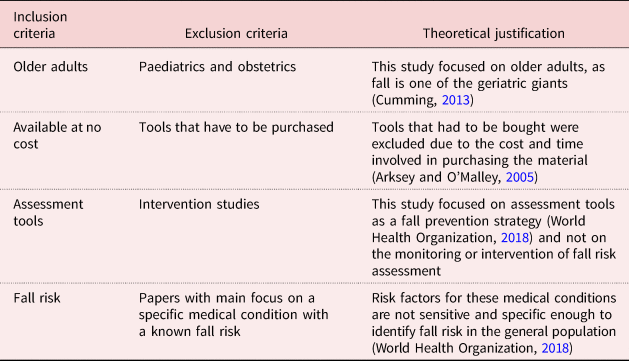Get This Report about Dementia Fall Risk
The Definitive Guide to Dementia Fall Risk
Table of ContentsExamine This Report about Dementia Fall RiskDementia Fall Risk for DummiesAbout Dementia Fall RiskWhat Does Dementia Fall Risk Do?Rumored Buzz on Dementia Fall Risk
Make sure that there is a designated location in your medical charting system where staff can document/reference ratings and record relevant notes connected to fall avoidance. The Johns Hopkins Autumn Risk Analysis Device is one of numerous devices your team can utilize to help protect against negative medical occasions.Client drops in health centers prevail and debilitating adverse occasions that continue regardless of decades of initiative to decrease them. Improving communication across the assessing registered nurse, treatment group, individual, and person's most entailed family and friends might enhance autumn prevention initiatives. A group at Brigham and Women's Health center in Boston, Massachusetts, sought to establish a standard fall prevention program that centered around boosted communication and individual and household interaction.

The innovation team stressed that successful application relies on individual and personnel buy-in, assimilation of the program into existing operations, and integrity to program processes. The group kept in mind that they are facing just how to ensure continuity in program execution throughout periods of dilemma. Throughout the COVID-19 pandemic, for instance, a rise in inpatient falls was related to constraints in client interaction together with constraints on visitation.
An Unbiased View of Dementia Fall Risk
These occurrences are generally thought about preventable. To apply the treatment, companies require the following: Accessibility to Autumn suggestions sources Loss ideas training and re-training for nursing and non-nursing personnel, including new nurses Nursing process that permit individual and household interaction to conduct the falls analysis, make certain use the avoidance strategy, and carry out patient-level audits.
The results can be very destructive, usually speeding up individual decline and causing longer medical facility stays. One research approximated stays boosted an extra 12 in-patient days after a client fall. The Loss TIPS Program is based upon appealing patients and their family/loved ones throughout three main procedures: evaluation, individualized preventative treatments, and auditing to ensure that people are taken part in the three-step fall avoidance process.
The patient analysis is based on the Morse Loss Range, which is a verified autumn threat assessment device for in-patient medical facility setups. The range consists of the 6 most common factors patients in hospitals drop: the individual fall background, high-risk conditions (including polypharmacy), use IVs and other outside devices, mental standing, gait, and flexibility.
Each danger factor relate to one or even more actionable evidence-based treatments. The registered nurse creates a strategy that includes the treatments and is visible to the treatment group, client, and household on a laminated poster or printed aesthetic help. Nurses create the plan while satisfying with the person and the patient's household.
Excitement About Dementia Fall Risk
The poster offers as a communication device with various other members of the individual's care team. Dementia Fall Risk. The audit component of the program includes examining the patient's knowledge of their threat elements and prevention plan at the device and hospital degrees. Registered nurse champions conduct at the very least five specific meetings a month with people and their households to inspect for understanding of the fall avoidance strategy

An approximated 30% of these drops result in injuries, which can range in severity. Unlike various other negative events that require a standard scientific reaction, loss avoidance depends highly on the needs of the person. Including the input of people that know the patient best enables higher customization. This approach has actually shown to be more efficient than loss prevention programs that are based primarily on the manufacturing of a risk rating and/or are not customizable.
9 Simple Techniques For Dementia Fall Risk

Based upon auditing results, one website had 86% conformity and two sites had more than 95% compliance. A cost-benefit evaluation of the Loss suggestions program in 8 hospitals estimated that the program expense $0.88 per person to implement and led to savings of $8,500 per 1000 patient-days in direct expenses connected to the prevention of 567 tips over three years and 8 months.
According to the innovation group, companies go to the website interested in executing the program must perform a preparedness analysis and falls prevention voids analysis. 8 Additionally, organizations ought to make sure the needed framework and operations for execution and create an implementation plan. If one exists, the organization's Autumn Prevention Task Force should be associated with planning.
Some Known Facts About Dementia Fall Risk.
To begin, companies need this hyperlink to make certain completion of training modules by registered nurses and nursing aides - Dementia Fall Risk. Health center team ought to evaluate, based upon the demands of a medical facility, whether to use a digital health and wellness record hard copy or paper version of the loss prevention plan. Executing groups must hire and train registered nurse champions and develop procedures for auditing and coverage on fall information
Personnel require to be included in the process of upgrading the operations to involve patients and family members in the assessment and avoidance plan procedure. Systems must be in area to make sure that units can recognize why a fall took place and remediate the cause. A lot more specifically, registered nurses need to have networks to give ongoing comments to both staff and system management so they can adjust and enhance autumn prevention process and connect systemic issues.